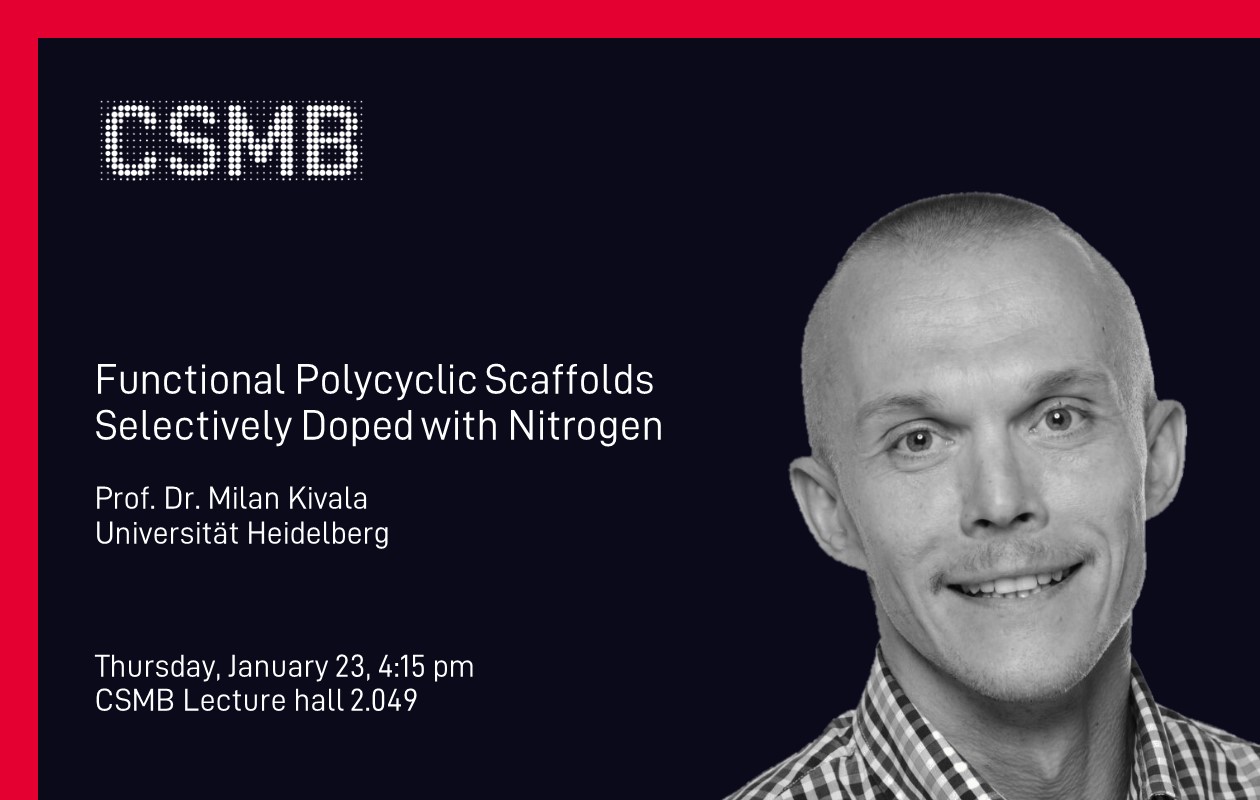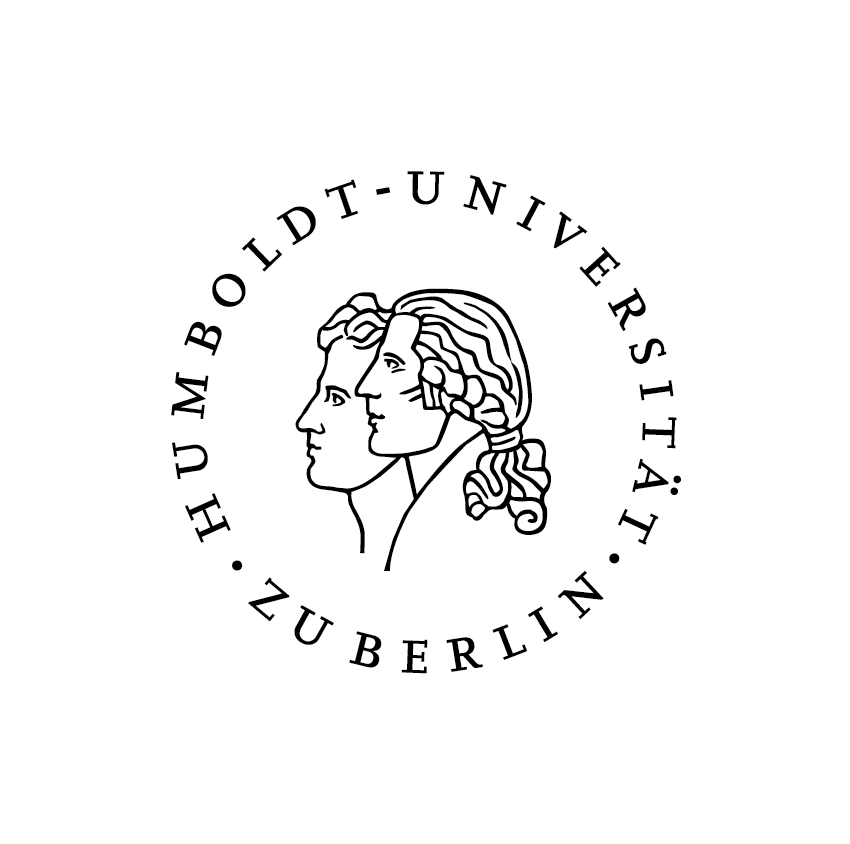
Functional Polycyclic Scaffolds Selectively Doped with Nitrogen – Prof. Kivala
We warmly welcome Prof. Dr. Milan Kivala, a distinguished expert in the field of organic materials and π-electron systems, whose groundbreaking research has significantly advanced the development of innovative molecular architectures and functional devices.
He was born in Rakovník, Czech Republic. He received his M.Sc. degree in 2003 from the Institute of Chemical Technology in Prague. In 2008 he completed his Ph.D. studies under the supervision of Prof. François Diederich at ETH Zurich and after a short postdoctoral stay at the same institution, he joined in 2009 the group of Prof. Klaus Müllen at the Max Planck Institute for Polymer Research in Mainz, Germany. In 2011 he moved to the Friedrich-Alexander-Universität Erlangen-Nürnberg where he completed his Habilitation on the synthesis and study of molecular fragments of heteroatom-doped carbon allotropes under the mentorship of Prof. Rik R. Tykwinski in 2016. In 2017 he has been appointed interim Chair at the same institution. In October 2018 he resumed his current position as a W3-Professor for Organic Chemistry at the Ruprecht-Karls-Universität Heidelberg.
Functional Polycyclic Scaffolds Selectively Doped with Nitrogen
Prof. Dr. Milan Kivala
Organisch-Chemisches Institut, Ruprecht-Karls-Universität Heidelberg
Im Neuenheimer Feld 270, 69120 Heidelberg, Germany
milan.kivala@oci.uni-heidelberg.de

Abstract
We use the selective incorporation of nitrogen into the sp²-carbon-based polycyclic scaffolds to efficiently modulate their optoelectronic and materials properties. In the resulting systems, the nitrogen readily adopts a planar sp²-hybridized geometry to provide for efficient electronic communication of its lone pair with the surrounding π-system. Moreover, the nitrogen can be reversibly oxidized to the corresponding radical cation with superior stability due to efficient delocalization of spin and charge throughout the π-conjugated framework. This approach yields a wide variety of nitrogen-doped polycyclic scaffolds with exciting properties that are of interest both as valuable objects for fundamental studies and as functional materials for diverse applications.
References
1. J. Borstelmann, L. Schneider, F. Rominger, F. Deschler, M. Kivala, Angew. Chem. Int. Ed. 2024, 63, e202405570.
2. A. Jocic, D. Galindo, A. Weidlich, J. Zerhoch, F. Rominger, T. Buckup, F. Deschler, A. Dreuw, M. Kivala, Adv. Opt. Mater. 2024, 12, 2401656.
3. J. Nebauer, C. Neiß, M. Krug, A. Vogel, D. Fehn, S. Ozaki, F. Rominger, K. Meyer, K. Kamada, D. M. Guldi, A. Görling, M. Kivala, Angew. Chem. Int. Ed. 2022, 61, e202205287.
4. M. Krug, N. Fröhlich, D. Fehn, A. Vogel, F. Rominger, K. Meyer, T. Clark, M. Kivala, D. M. Guldi, Angew. Chem. Int. Ed. 2021, 60, 6771.
5. M. Krug, M. Wagner, T. A. Schaub, W.-S. Zhang, C. M. Schüßelbauer, J. D. R. Ascherl, P. M. Münich, R. R. Schröder, F. Gröhn, P. O. Dral, M. Barbatti, D. M. Guldi, M. Kivala, Angew. Chem. Int. Ed. 2020, 59, 16233.
During the event, photo and video recordings might be made. The material will be used exclusively for the purpose of public relations at CSMB & HU Berlin.

